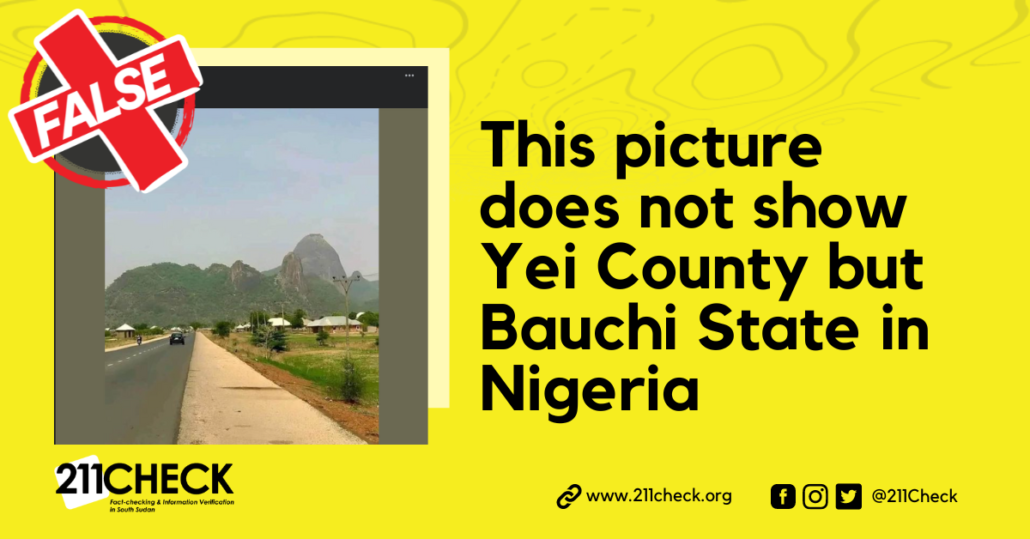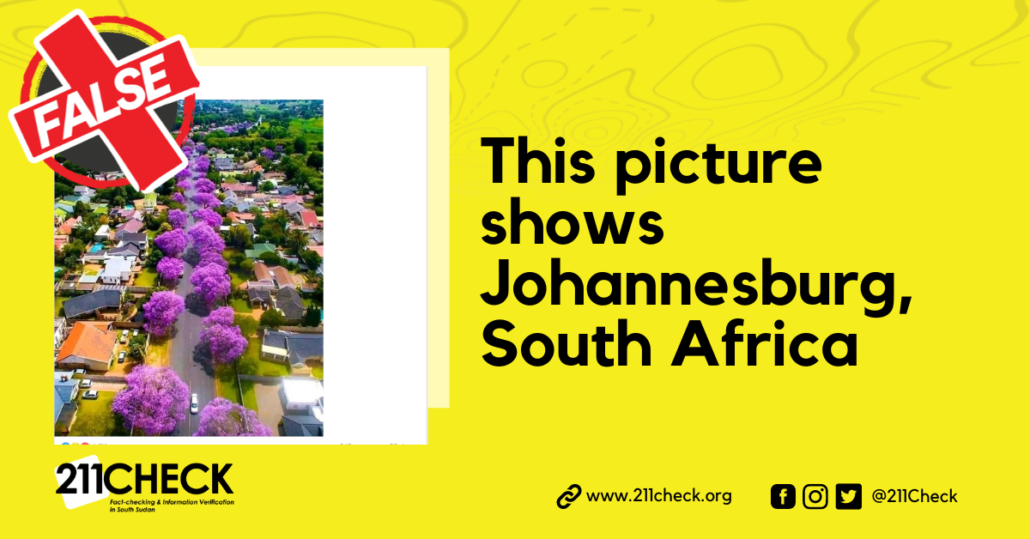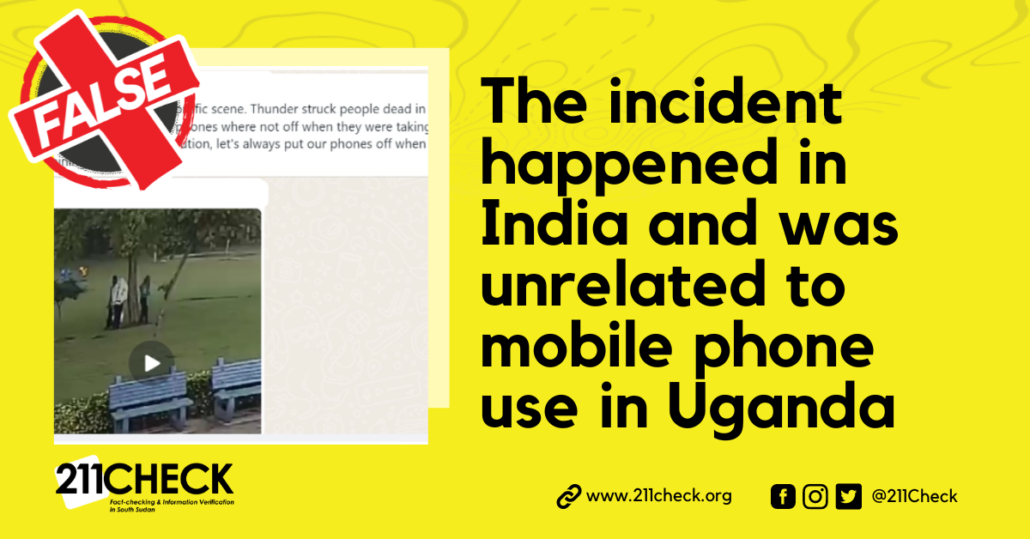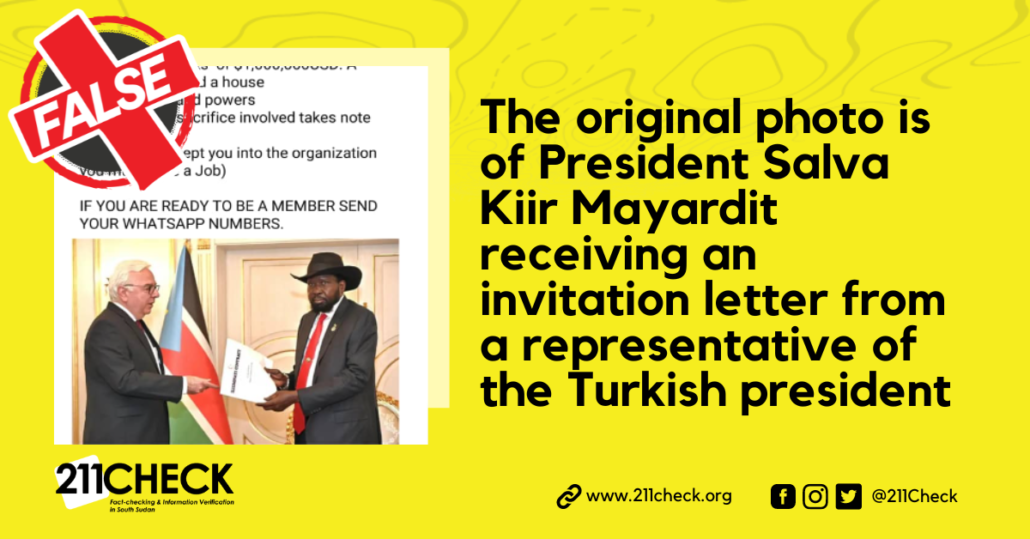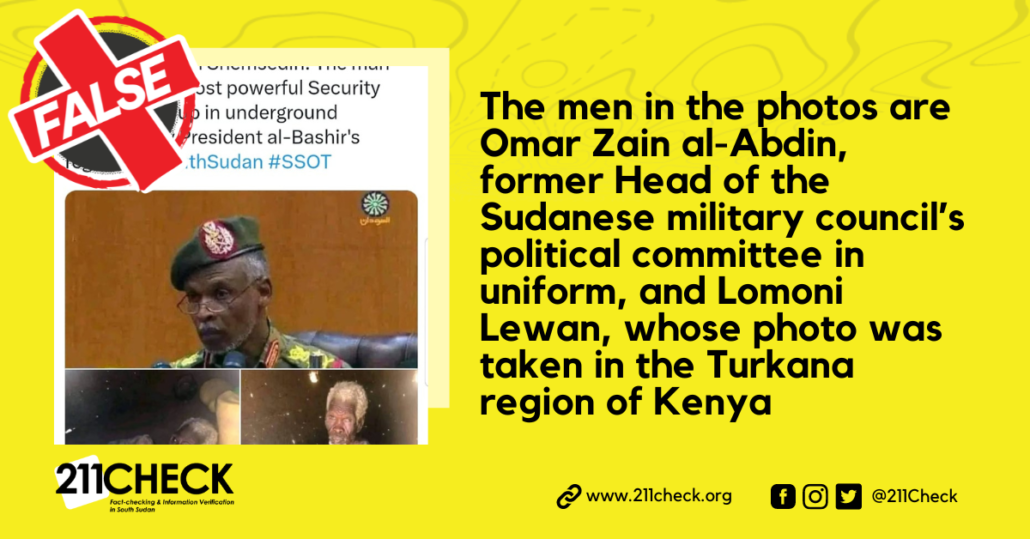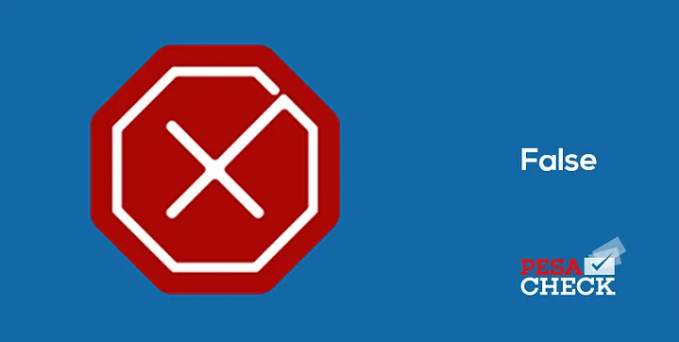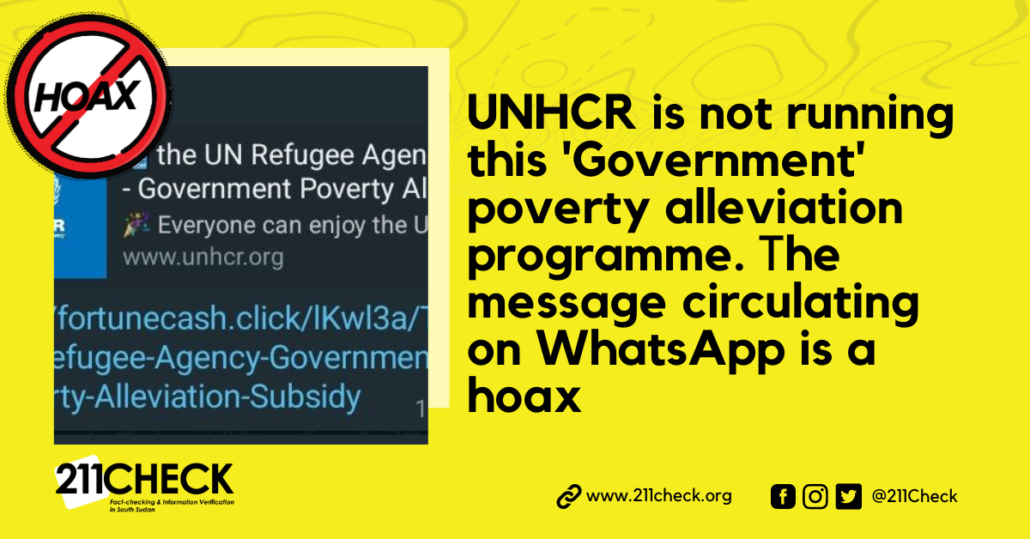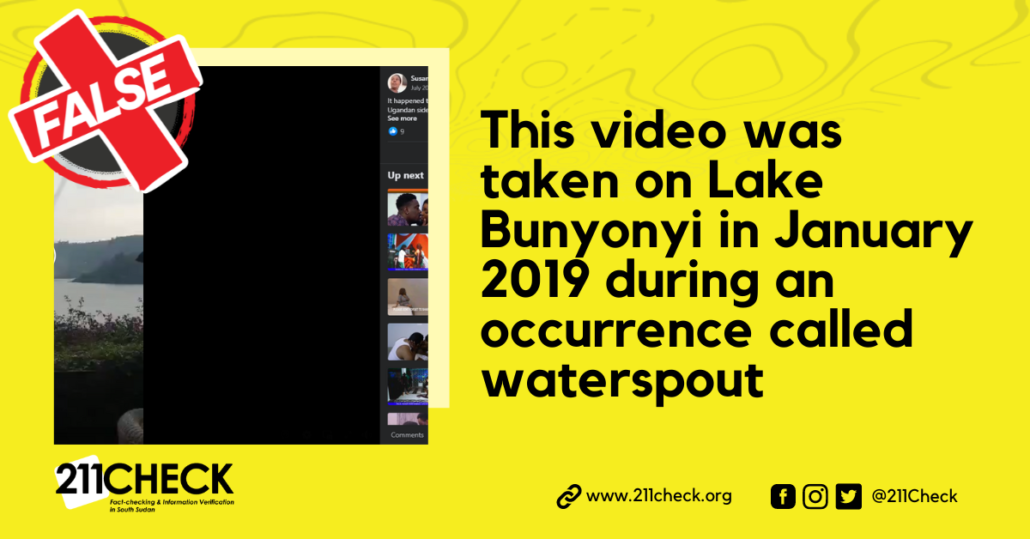Fact-check: This picture depicts Bauchi State, Nigeria, not Yei County, South Sudan
This picture does not show Yei County but Bauchi State in Nigeria.
Writer: Nancy Ceasar
There is an image of a highway, a car, and a mountain view posted on 9th August 2023 on a Facebook personal account created in 2009 with 7.2k followers with the caption, “Which place is this in, Yei?”
It is false. The place in the picture is not Yei.
This post attracted some comments and likes, and the commenters were guessing because they couldn’t tell which place it was, making it a reason to fact-check whether it was Yei River County.
This is a screenshot of the post.
This post attracted comments, and some commenters gave suggestions because they did not know whether it was Yei.
Investigation:
Visual Clues: Yei, a Central Equatoria State town, has no tarmac road. The roads and streets are also not as wide as those in the picture.
211 Check performed a reverse image search on the picture using Google Lens Search. The results show that Bauchi friends posted the image on Instagram on June 10th, 2021, with the caption, “This is a paradise for mountaineers and hikers. Which of the frames is your favourite?” “Mbula Hills, Dass LDA of Bauchi State, Nigeria, NG”
A screenshot of the picture that Bauchi’s friends posted
And the same picture was posted by Top Travel and Tour on Instagram with the caption “Top Places of Interest in Bauchi.” “Mbula Hill is one of the many hills in Bauchi state, located in the Dass local government area of Bauchi State.”
Mbula Hill, which is about 4100 feet high, is one of the major tourist destinations in Dass. Mbula Hill is an ideal destination for mountain climbers and hikers. When you plan on exploring Bauchi, remember to put Dass on your list”. This was shared on 5 January 2020.
The People, Relief, and Landforms of Dass Emirate posted the same picture with the caption, “As part of an effort by the present administration government and Governor Muhamad Abdullahi Abubakar of Bauchi State to explore tourism potentials in the state, Atewa Daily Blog deems it paramount to compile brief facts from Dass Emirate.”
This picture was posted on 13 July 2017
Conclusion:
211 Check finds the picture claimed to be a part of Yei false. The photo shows Bauchi State, Nigeria.
To ensure accuracy and transparency, we at 211 Check welcome corrections from our readers. If you spot an error in this article, please request a correction using this form. Our team will review your request and make the necessary corrections immediately, if any.
Fighting misinformation and disinformation in the media is crucial to avoiding fake news. Don’t share content you’re uncertain about. False information can harm and mislead people, risking their lives—Fact-check before sharing. For more details, visit https://211check.org/ or message us on WhatsApp at +211 917 298 255. #FactsMatter.

